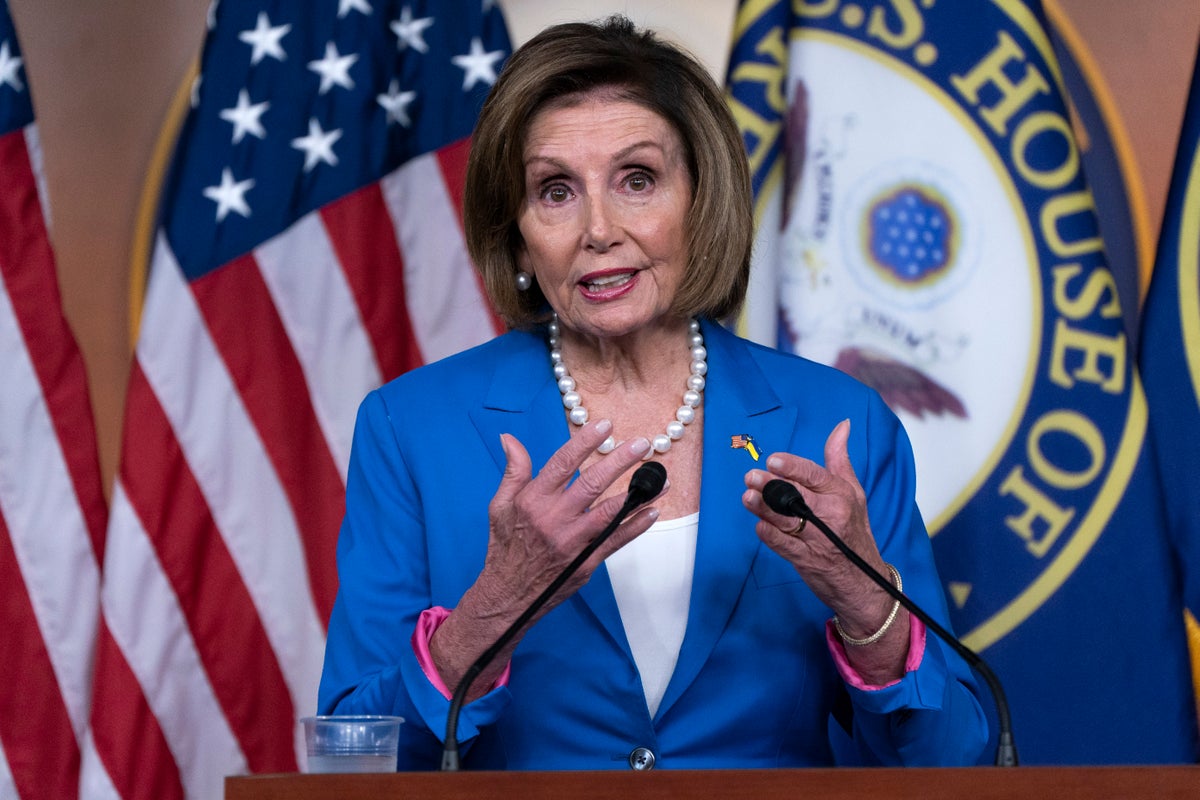
House Democrats struggled on Thursday to pass a long-sought policing and public safety package as internal party differences threatened to derail legislation they had hoped to make central to their election-year pitch.
A procedural vote to start debate barely succeeded, 216-215, after Democratic leaders spent hours wrangling with progressives who were threatening to block the package. House Republican leader Kevin McCarthy of California asked Democrats to hold the vote open, saying another GOP lawmaker was on the way, but Democrats gaveled it to a close.
Final votes were expected Thursday afternoon. Passage would send the bills to the Senate, where the legislation's fate is uncertain.
The package would increase money for local police departments, including those with fewer than 125 officers, and provide aid for de-escalation training and mental health services. A priority is reducing fatal encounters between police and people with mental illness.
“We want to break the cycle of violence,” said Speaker Nancy Pelosi, D-Calif.
A few progressive Democrats bemoaned what they said was the lack of accountability measures that party once sought after the police killing of George Floyd sparked protests against racial injustice.
Rep. Cori Bush, who rose to prominence as an activist leader in Ferguson, Missouri, after the fatal police shooting of 18-year-old Michael Brown, said the funding bill does little to address “the crisis of police brutality." But she said she would vote for the others pieces.
The opposition came despite support from the legislation for top progressives Reps. Pramila Jayapal, D-Wash., and Ilhan Omar D-Minn., who this week negotiated the package with Rep. Josh Gottheimer, a New Jersey moderate. After a deal was announced Wednesday, Democratic leaders quickly moved to bring the bills to a vote.
To get more liberals on board, language was included that would allow the Justice Department to have discretion over which police departments are permitted to receive the grants. It would also allocate $50 million for data collection on police practices and community safety.
“With this package, House Democrats have the opportunity to model a holistic, inclusive approach to public safety, and keep our promise to families across the country to address this issue at the federal level,” Omar and Jayapal, chair of the Congressional Progressive Caucus, said in a statement.
A policing package that passed in the House in March 2021 went much further, including banning police chokeholds and altering so-called qualified immunity for law enforcement, which would make it easier to pursue claims of police misconduct. None of those provisions was included this time.
The new package, Gottheimer said, has the support and input of law enforcement groups like the National Association of Police Organization and the Fraternal Order of Police.
It was unclear whether the bills would win any Republican votes.
“These are efforts to repair their image with voters who blame them for higher crime rates,” said Rep. Jim Banks, R-Ind., the chair of the Republican Study Committee. “The Democrats know that their anti-police rhetoric over the last few years has harmed them in key districts that they need to keep the majority, which they are not. This is a top-of-the-list item for voters.”







